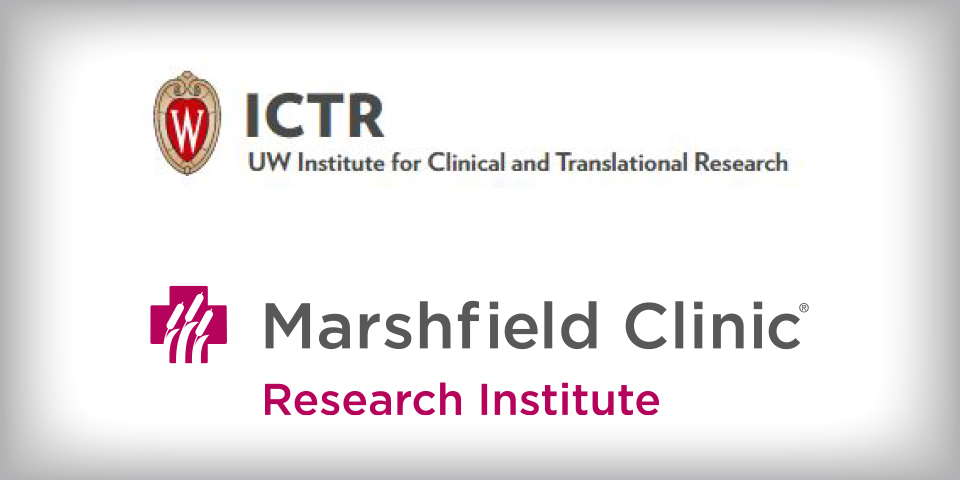Two researchers from Marshfield Clinic Research Institute recently received a UW Institute for Clinical and Translational Research award to fund research related to oral and systemic health.
The UW Institute for Clinical and Translational Research partners with the Research Institute to fuel major advancements in clinical and translational research. These two awards will allow the researchers to get early data so that larger studies can be conducted.
“These awards definitely lead to bigger and better things. For those at UW, it helps open up a larger, mainly rural database that they can't get at with their panel at UW," said Jeffrey VanWormer, Ph.D., research scientist at the Center for Clinical Epidemiology and Population Health and one of the award recipients. “It then helps us connect to larger centers of care. We really need that academic collaboration to support diverse research ideas from other specialists we encounter less often here in Marshfield."
Profiling oral cancer
Ingrid Glurich, Ph.D., project scientist in the Cancer Care and Research Center, and Randall Kimple, M.D., Ph.D., oncologist and associate professor at the University of Wisconsin School of Medicine and Public Health will serve as co-principle investigators on a study that will examine genetic profiles of oral cancer cells.
Andrew Urquhart, M.D., FACS, head and neck surgeon at Marshfield Clinic Health System, Todd Kroll, M.D., Ph.D., clinical pathologist at the Health System; Adedayo Onitilo, M.D., Ph.D., Cancer Care and Research service line medical director at the Health System and center director of the Cancer Care and Research Center at the Research Institute; and Neel Shimpi, B.D.S., Ph.D., associate research scientist in the Center for Oral and Systemic Health at the Research Institute will collaborate on the study.
“Recent research showed that the DNA fragments from single cancer cells released by cancerous tissues into body fluids are a different size than DNA from normal tissue cells," Dr. Glurich said. “The previous study showed that each cancer type examined had its own unique profile, and the genetic fragments not only reveal the tissue that released the cancer cell, but also gave clues to the genes involved in cancer progression."
However, this research did not examine oral cancers. These researchers will be working to profile oral cancer cells using saliva.
Sjogren's syndrome and menopause
Jeffrey VanWormer, Ph.D., research scientist at the Center for Clinical Epidemiology and Population Health will be working with Sara McCoy, M.D., rheumatologist at the University of Wisconsin School of Medicine and Public Health, to research Sjogren's syndrome.
Sjogren's syndrome is an immune system disorder that causes severely dry eyes and mouth because the body's immune system attacks the cells that create saliva and tears. Rheumatoid arthritis and lupus are often linked with Sjogren's syndrome.
Dr. McCoy has noticed in her practice that Sjogren's syndrome symptoms often happen in women at the time of menopause.
“Female hormones change quickly around the time of menopause," Dr. VanWormer said. “We will be researching if Sjogren's might be caused by those hormonal shifts."
These awards are expected to fund these research projects for one to two years.

